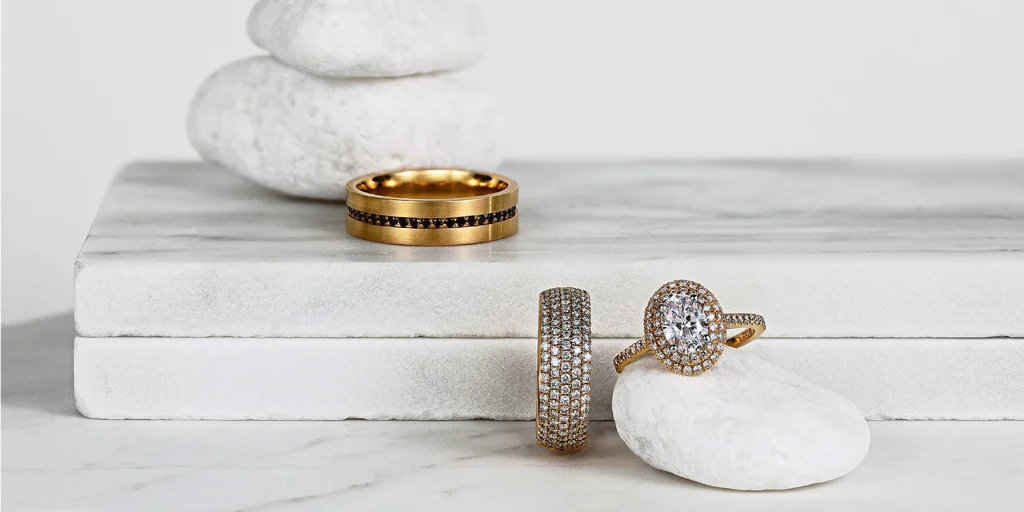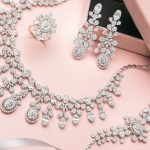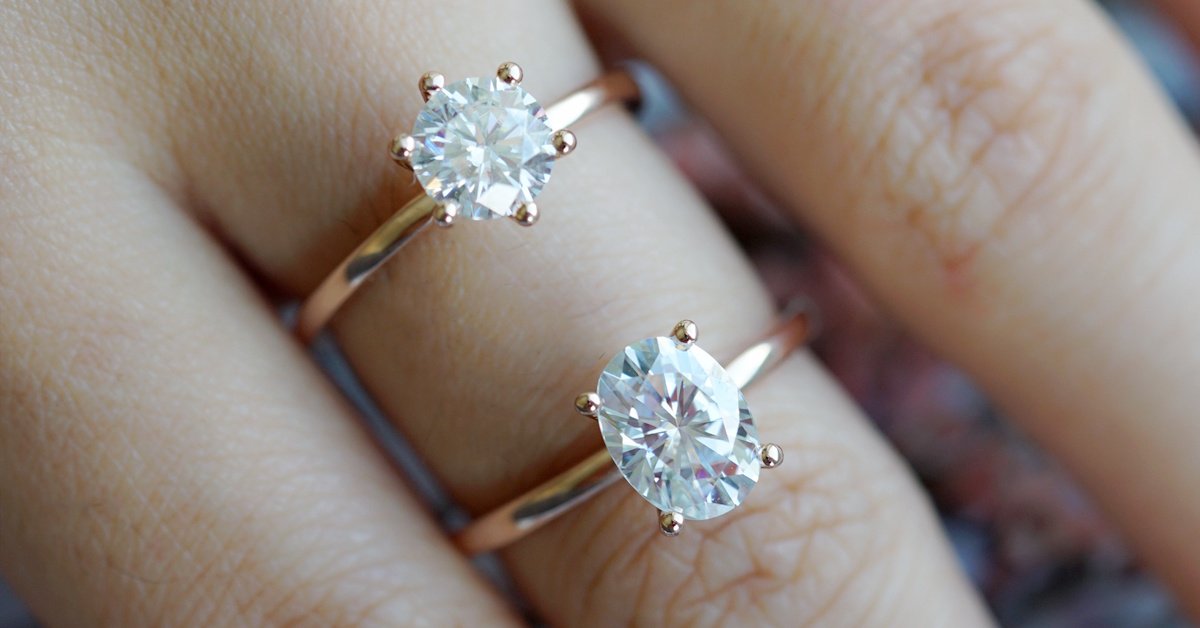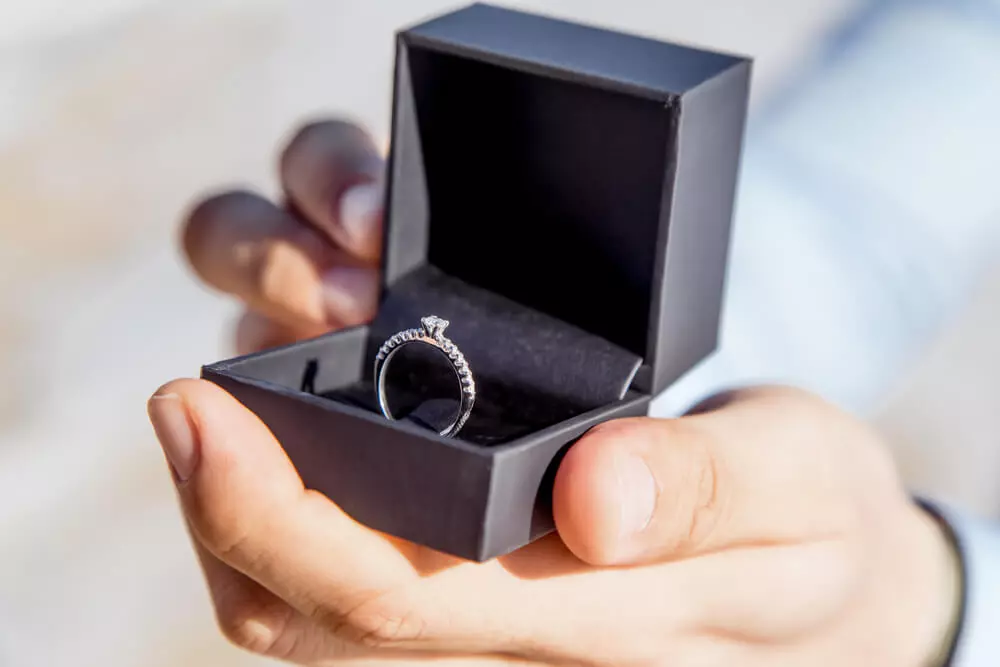When choosing wedding jewelry, gold and silver are traditionally the most popular metal options. However, there are several alternative metals for wedding jewelry that offer unique characteristics and styles that can make your wedding bands or engagement rings truly stand out. In this blog post, we will explore some of the top alternative metal options for wedding jewelry.

Content
Alternative Metals for Wedding Jewelry
Platinum: A Luxurious White Metal Alternative
Platinum is one of popular alternative metals for wedding jewelry. Known for its durability, hypoallergenic properties, and naturally white luster, platinum has become a favored choice for those seeking a luxurious alternative to traditional white gold or silver. Platinum will maintain its pristine white appearance for years to come without fading or discoloring like other white metals. However, platinum is denser and rarer than gold, making jewelry made from platinum generally more expensive. But for those wanting jewelry to treasure for a lifetime, platinum offers unparalleled quality and elegance.
Palladium: A More Affordable Platinum Alternative
As a member of the platinum group of metals, palladium shares many of the same desirable properties as platinum but at a lower price point. Palladium is lightweight, highly durable, and maintains a naturally white appearance similar to platinum.
It is also hypoallergenic. This has made palladium increasingly popular as a more affordable alternative to platinum in wedding jewelry. While palladium rings and bands may not carry the same luxury prestige as platinum, they offer excellent value for their quality and style.
Titanium: A Contemporary Choice
With its lightweight yet durable nature, titanium has gained popularity in wedding jewelry designs. Known for its strength and hypoallergenic properties, titanium lends itself to contemporary, minimalist styles. It maintains a subtle shine without being overly flashy.
However, titanium cannot be resized like precious metals if weight changes occur after wedding day. It may also show scratches or marks more easily over time. But for those wanting a modern metal with robust durability, titanium is an excellent choice.
Tungsten: The Ultimate Scratch-Resistant Option
Prized for its extreme scratch resistance, tungsten has become a top choice for men’s wedding bands able to withstand everyday wear and tear. It has a lustrous, gunmetal gray appearance and is highly durable. However, tungsten cannot be resized or repaired like other metals if damaged. It is also very hard and may shatter instead of bend if subjected to high impact. Nonetheless, tungsten offers an attractive, low-maintenance metal perfect for active grooms.
Cobalt: A Hardwearing White Alternative
Cobalt has risen in popularity as an affordable white metal alternative that does not compromise on style or quality. As a naturally white alloy, cobalt wedding bands and rings maintain a crisp, bright appearance similar to platinum or white gold. It is also hypoallergenic and about four times harder than platinum, making it very durable and long-lasting. At around half the price of platinum, cobalt offers excellent value and is a top contender for men’s wedding jewelry.
Stainless Steel: An Affordable Workhorse Metal
Stainless steel may not have the same luxurious appeal as precious metals, but it remains a practical and affordable choice for wedding jewelry. As a highly corrosion-resistant metal, stainless steel bands and rings will maintain their shine and not tarnish or discolor like other base metals.
With polishing, stainless steel can achieve a high luster. It is also very durable and low-maintenance. While it may not have the same resale value as gold or platinum, stainless steel offers dependable quality at an entry-level price.
In conclusion, considering alternative metals allows you to choose wedding jewelry perfectly aligned with your personal style, budget, and lifestyle needs.
Whether you opt for the timeless luxury of platinum, the contemporary appeal of titanium, or the scratch-resistant durability of tungsten, finding the right metal ensures your wedding bands or engagement rings will be a cherished symbol of your love for years to come.
FAQs
Can alternative metals like titanium be engraved or inlaid with designs and gemstones?
Yes, most alternative metals can be engraved or inlaid with additional designs, gemstones or other adornments. Titanium, tungsten, cobalt and stainless steel are suitable for various engraving techniques. Precious metals like platinum and palladium can also accommodate inlays or additional embellishments. Just check with your jeweler about the specific metal and any limitations.
How do I care for and maintain my alternative metal wedding rings over time?
Proper care and maintenance helps wedding rings made from alternative metals last. Avoid harsh chemicals, keep rings dry when doing chores, and clean periodically with a soft-bristled brush and mild soap. For tarnish-prone metals like stainless steel, occasional polishing helps maintain shine. Consider re-plating over time for metals like titanium that show wear more easily. With preventative care, alternative metal rings can look as good as new for many years.






